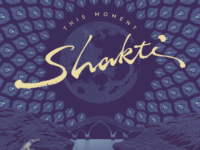Born in 1942 in Avranches, France, classically trained violinist Jean Luc Ponty discovered Miles Davis and JOhn Coltrane in his 20s and became a pioneer in the fusion movement of the late-’60s and throughout the ’70s.
He was – and still is – arguably the finest electric violinist in the world. Oops, did I say “arguably”? My bad, there is no argument there.
Ponty has put out a string of consistent records that can be classified as a rock-jazz fusion leaning a bit toward new age, but with just enough world-class musicianship and interestingly tricky melodies to avoid being lumped in with the likes of Yanni.
Throughout the 1980s and early ’90s, Jean Luc Ponty stayed within his own path while other fusion masters either went back to straight-ahead jazz or morphed their music into “smooth” jazz. Then, after an acoustic record with Al diMeola and Stanley Clarke in 1994, Ponty stopped making studio records altogether – until Life Enigma arrived on Aug. 21, 2001.
Self-released, because Ponty apparently had enough with record companies, this project didn’t follow the usual gradual progression of his music, but rather was a look back at it. Promotional material at the time described Life Enigma as a “return to the musical style he perfected during his decade-long stint with Atlantic Records, including his two most commercially popular albums, 1977’s Enigmatic Ocean and 1978’s Cosmic Messenger.
Aside from lifting the chord changes in “Signals From Planet Earth” from “Don’t Let the World Pass You By” off of 1978’s Cosmic Messenger, however, there wasn’t anything “’70s” about Life Enigma. Instead, the album combined the meticulously programmed textures of the 1980s with the West African rhythms of the early ’90s.
Disappointingly, while the packaging features images of his touring band, they only played together on a single track from Life Enigma. Jean Luc Ponty preferred to record all the pieces himself, except where he needed help. A shame, because it’s a very talented group, particularly Guy Nsangue Akwa on fretless electric bass.
Akwa’s solo on “And Life Goes On” provides just a brief showcase of what he is capable of doing. It would have also been nice to have Jean Luc Ponty trade licks with a crack session guitarist like Daryl Stuerner, but there’s no axe this go around. Nevertheless, these recordings still showcase Ponty’s unparalleled electric 5-string violin, the crisp engineering and arrangements and the recognizable classically influenced jazz-rock original compositions.
For those reasons alone, Jean Luc Ponty’s long-awaited comeback album remains a required purchase for anyone who considers himself a fan of his music.
MORE FROM JEAN LUC PONTY
For those starting out, consider:
KING KONG (1969): Frank Zappa both arranged and composed this brilliant early-fusion masterpiece, but Ponty’s “sheets of sound on strings” provides the icing on the cake. If you like Zappa, here is your bridge to Ponty.
ENIGMATIC OCEAN (1977): Jean Luc Ponty’s 1970s-era fusion records for the Atlantic label introduced a whole generation of rockers to jazz back then (this reviewer included). All of his records then were consistently good, but this one gets the nod for guitarist Alan Holdsworth’s contributions. No guitar player’s style was a better fit for Ponty than Holdsworth.
MYSTICAL ADVENTURES (1982): The last in a long string of band-based records, and the best recorded of that string.
STORYTELLING (1989): Probably Ponty’s most accessible record, and the most energetic in a while. Includes guest spots by Grover Washington Jr. and Patrice Rushen.
NO ABSOLUTE TIME (1983): Ponty’s last studio record under his name (until Life Enigma) is his best since King Kong, perhaps his best fusion record ever. Deftly combines the brand of fusion he had done for 20 years with the world-beat sounds of 1991’s Tchokola. I didn’t think much of this record at first but it grew on me over time; the percussion and Guy’s bass playing is undeniably first class.
- Claudio Scolari Project – ‘Opera 8’ (2024) - April 25, 2024
- Nick Millevoi – ‘Moon Pulses’ (2024) - April 23, 2024
- Cannonball Adderley – ‘Poppin’ in Paris: Live at L’Olympia 1972′ (2024) - April 20, 2024




